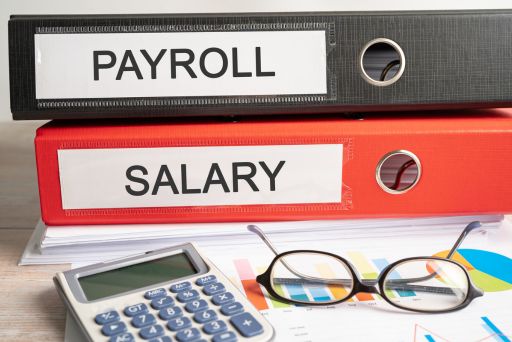Running a restaurant is a dream for many, but it comes with its fair share of challenges, particularly in the financial realm. Proper bookkeeping for restaurant owners is essential for the success and longevity of your business. In this comprehensive guide, we’ll delve into the intricacies of restaurant accounting, food costs, labor costs, and more to help you maintain your restaurant’s financial health and make informed business decisions.
Understanding Restaurant Accounting
Restaurant accounting is the backbone of any successful eatery. It involves meticulous record-keeping and financial management to ensure the business stays profitable. Let’s explore the key aspects:

The Basics of Bookkeeping for Restaurant
In the realm of restaurant bookkeeping, accuracy is paramount. At its core, this process revolves around meticulously tracking financial transactions to ensure a seamless financial operation. From recording sales data through a POS system to managing payroll and supplier payments, every financial aspect demands precise attention.
Additionally, a vigilant eye is essential to spot and rectify any accounting errors that may arise, preventing potential discrepancies that could affect your business’s financial stability. Moreover, staying compliant with sales tax regulations is crucial, and this responsibility often falls within the purview of a dedicated restaurant accountant who ensures that the restaurant meets its tax obligations promptly and accurately.
The Importance of Financial Statements
It plays a pivotal role in the world of restaurant bookkeeping, serving as invaluable tools for gauging your establishment’s financial health. They offer a comprehensive view of your restaurant’s performance, encompassing vital aspects such as food sales and cost of goods sold. By carefully examining income statements, you can gain insights into your revenue and expenses, including the costs directly related to food sales. This analysis is pivotal in optimizing profitability and identifying areas for improvement.
Balancing the equation, the balance sheet provides a snapshot of your restaurant’s financial standing at a specific point in time, including assets and liabilities. Meanwhile, cash flow statements offer an intricate perspective on the inflow and outflow of cash within your restaurant, helping you manage fixed costs efficiently. This trio of financial statements forms the cornerstone of restaurant bookkeeping, equipping you with the knowledge needed to make informed decisions, control expenses, and ultimately thrive in the competitive restaurant industry.
Controlling Food Costs
Food costs are a significant expense in the restaurant industry. Keeping these restaurant expenses in check is crucial for profitability.
Calculating Cost of Goods Sold (COGS):
Calculating the Cost of Goods Sold (COGS) is a pivotal aspect of restaurant bookkeeping that requires precision. COGS represents the direct costs incurred in producing the food and beverages your restaurant serves, and it significantly influences your gross profit margin.
Accurate COGS calculations are vital because they provide a clear picture of how efficiently your restaurant is managing its raw material costs. This knowledge allows you to make informed decisions about pricing, menu offerings, and supplier negotiations, all of which can significantly impact your restaurant’s profitability.
Managing Inventory Costs:
Effective inventory management is a linchpin in the intricate machinery of restaurant bookkeeping. It serves as a potent tool for reducing wastage, controlling costs, and ensuring that you always have the right ingredients on hand when your kitchen needs them. By minimizing wastage and spoilage, you not only cut down on food costs but also contribute to better cash flow management.
One effective strategy in managing inventory costs is implementing a first-in, first-out (FIFO) system, where older inventory is used before newer inventory. Regular inventory checks and audits are also essential to identify any discrepancies and potential areas of improvement.
Efficient inventory management not only reduces food costs but also ensures that you’re prepared to meet customer demands without over-purchasing or understocking, ultimately contributing to the financial well-being of your restaurant. It’s a practice that aligns closely with accurate COGS calculations and, when combined, can significantly enhance your restaurant’s profitability and sustainability.
Managing Labor Costs
Labor costs are another substantial expense for restaurants. Effective management is essential to optimize your budget.
Understanding Labor Cost Components:
In the world of restaurant bookkeeping, labor costs are a substantial chunk of expenses, and it’s crucial to dissect their components for effective management. Labor cost components encompass various aspects, with the primary ones being wages, benefits, and payroll taxes.
Wages: This constitutes the basic pay that your employees receive for their work, such as hourly wages or salaries. Understanding wage structures, including overtime rates, can help you create efficient schedules that optimize labor costs.
Benefits: Beyond wages, benefits include perks like health insurance, retirement plans, and paid time off. These elements can significantly impact your labor costs. It’s essential to evaluate the necessity and sustainability of the benefits offered while considering their influence on employee retention and morale.
Payroll Taxes: Payroll taxes include deductions made from employees’ paychecks to fund government programs like Social Security and Medicare. Employers are also responsible for paying payroll taxes, such as unemployment taxes. Understanding the tax obligations associated with your workforce and staying compliant with tax laws is critical.
Payroll Liabilities and Taxes:
Payroll liabilities and taxes constitute a critical aspect of restaurant bookkeeping, and vigilance in this area is paramount. Restaurant owners must stay on top of various payroll tax obligations to maintain compliance with tax regulations and avoid potential penalties.
Payroll Tax Obligations: These obligations encompass a range of taxes, such as federal and state income taxes, Social Security taxes, and Medicare taxes. Employers are responsible for withholding these taxes from employees’ paychecks and remitting them to the appropriate tax authorities.
Managing Payroll Taxes Efficiently: To manage payroll taxes efficiently, it’s essential to accurately calculate and withhold the correct amount from each employee’s paycheck. Timely remittance of these taxes is crucial to avoid penalties and interest charges.
Handling Operating Expenses
Beyond food and labor, there are various operating expenses that you must account for to keep your restaurant afloat.

Fixed Costs vs. Variable Costs:
In the realm of restaurant bookkeeping, understanding the fundamental difference between fixed and variable costs is pivotal for effective financial management. Fixed costs remain constant regardless of your restaurant’s sales volume, encompassing expenses such as rent, insurance, and equipment leases.
In contrast, variable costs fluctuate with your restaurant’s activity, including ingredients and labor. To optimize profitability, restaurant owners should strategize ways to reduce expenses without sacrificing quality, identifying opportunities to trim fixed costs through negotiations, lease reviews, or space optimization, while efficiently managing variable costs through inventory control and labor scheduling.
Accounts Payable Process:
The accounts payable process is a crucial component of restaurant bookkeeping, influencing your relationships with suppliers and your restaurant’s financial stability. Implementing efficient accounts payable practices involves meticulous record-keeping, setting clear payment terms with suppliers, and utilizing digital tools for invoice processing and payment automation.
Implementing Restaurant Accounting Software
In the digital age, accounting software is a game-changer for restaurant owners. Explore the benefits of restaurant accounting software and how it can simplify your financial management.
Choosing the Right Accounting Software
Selecting the appropriate accounting software for your restaurant is a pivotal decision that can significantly impact your financial management efficiency. With a multitude of options available, it’s crucial to assess your restaurant’s specific needs and budgetary constraints.
Making an informed choice in accounting software can streamline your restaurant’s financial processes, reducing errors and saving valuable time that can be better directed toward enhancing customer experiences and overall business growth.
Leveraging POS Systems
Point of Sale (POS) systems are indispensable tools in modern restaurant operations, and when integrated with accounting software, they become a dynamic duo for financial management. These systems not only simplify sales data entry but also facilitate real-time tracking of revenue and expenses, providing accurate insights into your restaurant’s financial health.
By leveraging POS systems, you can ensure the seamless flow of financial information into your accounting software, resulting in up-to-date, error-free financial records. This integration not only enhances efficiency but also allows you to make data-driven decisions that optimize your restaurant’s profitability and overall success.
Monitoring Financial Performance
Your restaurant’s financial standing depends on continuous monitoring and analysis of key financial metrics.
Gross Profit and Net Profit
Understand the difference between gross and net profit, and how these metrics reflect your restaurant’s overall financial performance.
Financial Reporting and Analysis
Learn how to create and interpret financial reports to gain insights into your restaurant’s strengths and areas for improvement.

Outsourcing Payroll and Accounting
Managing restaurant payroll and accounting can be overwhelming. Outsourcing these tasks can save you time and reduce the risk of errors.
The Role of Restaurant Accountants
Discover how restaurant accountants can help you maintain financial accuracy and navigate complex tax regulations.
Benefits of Outsourcing Payroll
Explore the advantages of outsourcing payroll, including cost savings and compliance with payroll tax regulations.
Maintaining Financial Records
Accurate record-keeping is a fundamental aspect of bookkeeping for a restaurant. Learn how to maintain organized accounting records for your business.
The Importance of Account Reconciliation
Regular account reconciliation ensures that your bank accounts and financial data align, preventing discrepancies and potential financial errors.
The Role of Chart of Accounts
A well-structured chart of accounts simplifies financial reporting and aids in tracking specific expenses and revenues.
Enhancing Business Strategy
Beyond day-to-day financial management, your bookkeeping efforts can inform your long-term business strategy.
Using Sales Data for Strategy
Analyze sales data to identify trends and opportunities that can inform your menu, pricing, and marketing strategies.
Benchmarking Against Industry Averages
Comparing your restaurant’s financial performance to industry averages can help you set realistic goals and expectations.
In this comprehensive guide to bookkeeping for restaurant owners, we’ve covered essential topics, from restaurant accounting and food costs to labor management and financial reporting. By mastering these aspects, you can enhance your restaurant’s financial standing, make informed decisions, and ensure the long-term success of your business. Remember that accurate bookkeeping is the key to understanding how much revenue your restaurant generates, managing expenses, and ultimately thriving in the competitive food and beverage industry.
For further insights and resources on restaurant accounting, consider consulting industry experts, exploring dedicated accounting software, and staying informed through resources like the National Restaurant Association. With the right knowledge and tools, you can take control of your restaurant’s finances and achieve lasting profitability.

Elevate Your Restaurant Business with Vyde’s Expert Bookkeeping!
Unlock the full potential of your restaurant with Vyde’s professional bookkeeping services. Get detailed financial insights at your fingertips and let our team of accountants take the hassle out of your bookkeeping and taxes. With Vyde, you can say farewell to the endless hours of dealing with spreadsheets and the chaos of receipts. We’re here to ensure your financial management is as smooth and efficient as your kitchen, giving you the freedom to focus on creating culinary delights. Streamline your bookkeeping, minimize accounting headaches, and keep your attention where it belongs – on your restaurant’s success. Choose Vyde for financial clarity and peace of mind.


